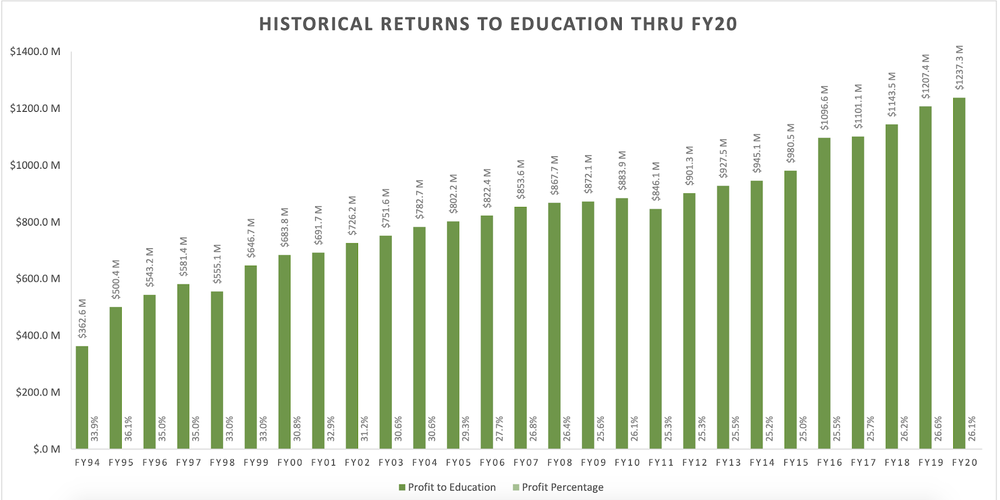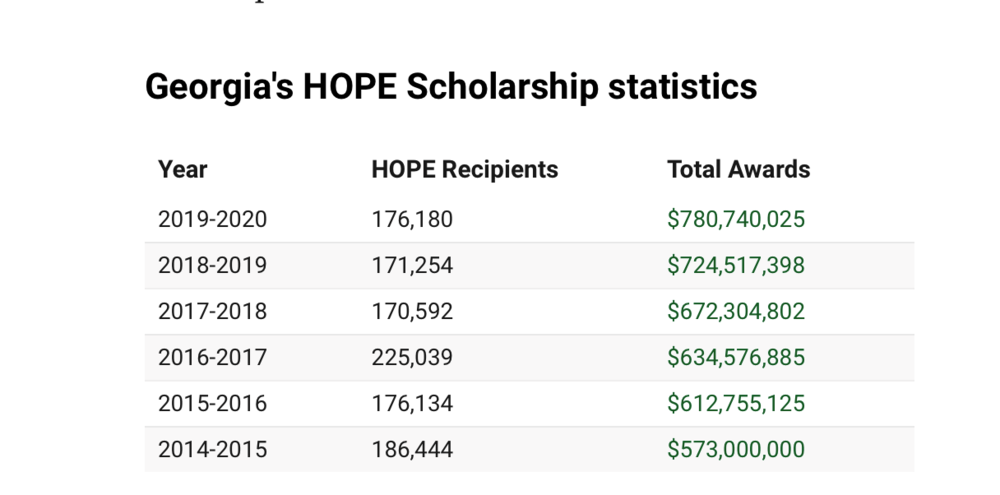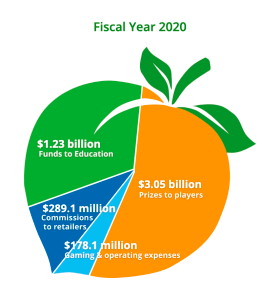
Caption
A bill to allow online sports betting remains alive with less than a week remaining this session. It passed the Senate in a 32-17 vote.
Credit: The Current/Stock photo

A bill to allow online sports betting remains alive with less than a week remaining this session. It passed the Senate in a 32-17 vote.
Laura Corley, The Current
For more than a decade, Georgia’s lawmakers participated in an annual ritual: gambling lobbyists would help push bills to legalize the multibillion-dollar industry in the Peach State, and those efforts would die.
After a year of financial belt-tightening due to the COVID-19 pandemic, there seems a possibility one of the half dozen gambling-related bills introduced at the General Assembly this session could actually become law.
A bill to allow online sports betting remains alive with less than a week remaining this session. It passed the Senate in a 32-17 vote. However, it remains to be seen if sports betting will be a priority for the House, where similar bills have stalled this session.

Senate Bill 142 is co-sponsored by Sen. Ben Watson, R-Savannah.
SB 142, co-sponsored by Sen. Ben Watson, R-Savannah, would make online sports betting a game of the Georgia Lottery Corp. to be played by people ages 21 and older who are physically in this state when they wager.
The House Committee for Economic Development & Tourism is expected to debate the bill as it continues toward a full vote in the House next week.
SR 135, which passed in the Senate 41-10, would include the question on the ballot in a statewide referendum in November 2022. The House will have to approve the resolution with at least two-thirds in support for the question to make it on the ballot.

Opposition to legalized gambling has been a bipartisan issue.
Opposition to legalized gambling has been a bipartisan issue. Religious conservatives contend it’s immoral while progressives, who want a larger proportion of state funds dedicated to social welfare programs, argue the current reliance on the state lottery to rake in revenue exacerbates poverty and racial inequality.
The bill has the backing of local business leaders and a local political action committee called the Georgia Professional Sports Integrity Alliance, which represents the interests of Atlanta sports teams the Braves, Falcons, Hawks and United. The PAC has contributed more than $272,000 campaign dollars to Georgia state lawmakers since it was established in 2019.
Half the net revenue generated by sports betting under the Senate bill would go to a special fund for education to be used for needs-based scholarships, grants and loans for college students, voluntary pre-kindergarten and – only if those needs are met – capital improvement projects for independent and local school systems. Some of the other revenue would go toward expanding rural healthcare services and broadband internet, according to the resolution.

Rep. Ron Stephens, R-Savannah, is one of the state’s most ardent gambling industry supporters.
Rep. Ron Stephens, R-Savannah, is one of the state’s most ardent gambling industry supporters. He introduced a similar bill in the House this legislative session, only his bill directed sports betting revenue to the HOPE scholarship program.
“I’ve been working on that for decades,” Stephens said. “It’s about my grandkids that I want to have an opportunity to have a full-ride if they earn it on a scholarship, just like my two daughters did.”
Stephens said he believes sports betting and other forms of gambling are good for Georgia because the multibillion industry offers the state a chance to help a growing number of economically vulnerable families by helping to fund college scholarships.
“Everybody’s laser focused right now on capturing the revenue and activity,” he said.
The state lottery is the only form of legalized gambling allowed under the Georgia Constitution. It raked in $4.75 billion in proceeds for 2020, according to a financial report.
Stephens and other lawmakers say that Georgia can build on this success and plug holes in the state budget by capturing money already circulating from unregulated and illegal gambling.
Last year, sports betting raked in more than $1 billion in revenue for 14 states, a number projected to more than quadruple in the next two years.
Not everyone agrees that the gambling in any form is good for business or for residents.
The Georgia Baptist Mission Board is among those vocalizing opposition to gambling legislation. Non-Religious groups have spoken up too.
Stephens introduced two other gambling-related bills this session including one for horse race betting and another for casino gambling. Neither received enough support.
Opponents to changing state law say that widening the gambling of industry here is a slippery slope to casino gambling.
However, many of the 25 states that have legalized sports betting now offer it through the state lottery, such as Tennessee. That has “blurred the lines between lottery and casino gambling,” according to a March 1 report by the National Conference of State Legislatures.
Of the 17 states that have introduced sports betting bills in 2021, at least 9 do not have casinos.
The Georgia Lottery revenue is currently underutilized when it comes to returns on education.
“In law, lottery reserve (money), lottery, ticket sales, the percentage that is supposed to go to education is 35%,” said Jennifer Lee, higher education policy analyst for the Georgia Budget and Policy Institute. “Right now, the lottery only returns 25% to education.”
One way to ensure increased revenue for HOPE scholarships would be to codify into state law that 35% must be earmarked for education. A needs-based HOPE scholarship also would help increase the amounts awarded to students, however a bill proposing just that this legislative session failed.
The last year the Georgia Lottery met the 35% minimum threshold was 1997. Since then, the share of revenue the state received has declined gradually.
In 2020, 26% of lottery revenue went toward state education, according to a report detailing historical returns to the state since the creation of the lottery in 1994.
“The law says: ‘As nearly as practical,’ net proceeds from Georgia Lottery games shall equal at least 35% of the lottery proceeds,” Lee said. “The ‘as nearly as practical’ is what Lottery has interpreted liberally.”

Historical returns and percentages from the Georgia Lottery Corp. to education 1994-2020.
The lottery has argued that sharing more money with the state could mean fewer dollars paid out to players, which would affect ticket sales and ultimately hurt the return to the state. It said in a statement on its website that the language of the law “allowed the lottery to be flexible and change with the marketplace.”
However, financial audits indicate ticket sales and revenue have been steadily climbing for years. Gross ticket sales were up by almost $199 million, roughly 4.2%, in 2020 compared to 2019.
The Georgia Lottery Corp. did not reply to several inquiries from The Current.
“The lottery’s argument could bear out if taken to extremes, but I am very skeptical we can’t do more,” Lee said. “If the returns to education were to increase to 35%, net ticket sales would have to decline by more than $1.1 billion, or 24%, in order for education dollars to be worse off.”
The General Assembly decides each legislative session how much lottery money to appropriate for HOPE scholarships and grants. For the past decade, those yearly appropriations have been $60 million more than what is awarded to students, according to Lee’s report.
Georgia's HOPE Scholarship statistics

Source: Georgia Student Finance Commission
Georgia Lottery’s reserves now total $1.3 billion, about $700 million more than the law said it should save. Compare that to North Carolina, which caps lottery reserves at $25 million, and other states that adopted measures to avoid stockpiling money meant for education.
“I don’t think anybody ever thought that we would be withholding that much money in reserve,“ Stephens said. “We’ve got it up to like 128%. … We’re going to right size that over a period of time, make sure that we got the reserve that’s needed, and only the reserve is needed.”
In some ways, the future of gambling in Georgia hinges on perceptions about what kinds of venues are acceptable.
A study published in February by GBPI, a nonprofit, nonpartisan policy think tank, detailed reasons why casino gambling could do more harm than good in the Peach State. Though lobbyists promise big payouts for state budgets, in reality it is “not a stable, adequate or fair source of revenue,” the report concludes.

Georgia Lottery Corp. breakdown of revenue for fiscal year 2020.
Lee, who authored the study, said good policy has a clear purpose and seeks to solve a problem. Georgia’s gambling laws do not, she says.
“I think the question to ask about casino gambling is, what is the purpose of making a very large change to Georgia’s economy and regulatory system and constitution?” Lee said. “It’s not really clear to me, you know, what problem problems casino gambling is trying to solve (that) are not better solved by others.”
If it’s about boosting economic development, “there are other ways that are more fair,” Lee said, noting that people with lower incomes are more likely to spend more of their earnings on gambling. The study also mentioned that the popularity and convenience of automated gambling machines could result in fewer jobs than anticipated.
Rep. Al Williams, D-Midway, who co-sponsored the casino bill, has been to a dozen casinos in four states over the past two years.
He said he has never gambled but went “to look at them.”
Georgia State Rep. Al Williams, D-Midway, presents economic benefits to a proposed casino resort destination in Midway in a regular meeting in February 2021.
“I wanted to find out, not in an official capacity, but in a personal capacity, what was really going on,” he said to Liberty County Commissioners in a February meeting. He most enjoyed “the food, the entertainment and the people watching.”
But for the county, such a place could mean 3,000-5,000 new jobs, a $300 million building, a higher average salary, a tourist attraction/performance venue and lots of tax dollars, he said.
He assured the board casinos would have to be locally approved “if–when” the bill was passed and voters approved it and it was signed into law.
Nancy Maier, who lives in Midway and teaches English as a second language for the Technical College System of Georgia, said she did not know about the proposal until watching a TV news report about it in February.
The proposed casino resort destination in Midway off Interstate 95 at U.S. 84 does not appear to be a dissolved plan despite the bill’s failure to pass this year.
“We do not want a casino in our area,” she said in a Zoom meeting with the House Regulated Industries Lottery Oversight Gaming Committee meeting earlier this month. “We are not a destination. We are in the middle of nowhere. … What will become of us and everybody here when the casino comes in?”
This story comes to GPB through a reporting partnership with The Current, providing non-partisan, solutions-based investigative journalism without bias, fear or favor with clear focus on issues affecting Savannah and Coastal Georgia
